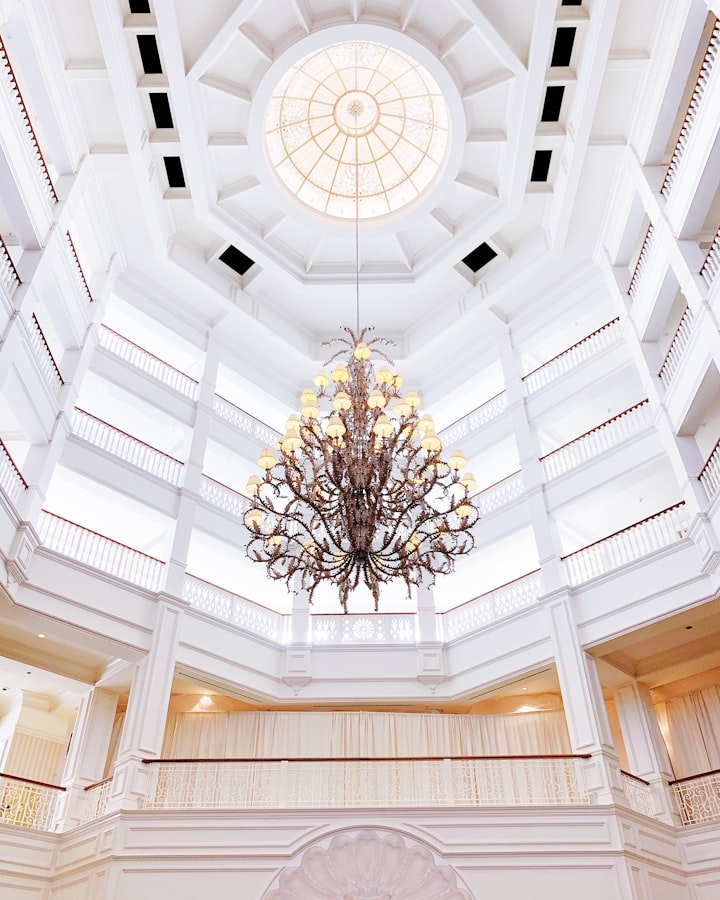Why Eloise Isn't A Feminist
A Bridgerton Character Study

I meant to have this out in time for Women's History Month, but life got in the way...
Feminism has existed for as long as there was a Patriarchy to oppose.
From scolars like Hypatia of Alexandria and Agnodike of Athens, to warriors such as Agnes Hodot and Julie d'Aubigny, Pirate Queens Grace O'Mally and Ching Shih, to Empress Theodora of Byzantuim and Catherine the Great of Russia, History is full of women who rejected the status quo and put themselves in the pages of history books.
Feminism has taken many forms, but in it's essence, it is the effort to uplift and empower women.
Empowerment, also, depends heavily on whose eyes are being used to view the term, but can be condenced to 'supporting women in their choices', whether or not we personally disagree with those choices.
For example, I can have the opinion that the TradWife movement is built on lies and misogyny (baking bread and making jam are not short or easy tasks, FYI, and that toddler was either fed beforehand, or screaming with hunger the entire time), and encourage anyone planning to pursue that life to do more research into the protections and resources traditionally available to housewives pre-1950s, but if a woman told me that she's going to be a housewife or stay-at-home Mum, I'd support her decision 1000%.
It's become a thing recently for pseudo-Historical movies and TV shows to include characters with far more modern views than would realistically be held in the time period.
The problem is, these characters tend to link those views with heavy "Not Like Those Other Girls" energy, leading viewers to question whether it's really feminism, or just Internalised Misogyny. It doesn't help that most of those characters are white, wealthy and privileged, with the same blind spots as early Women's Rights activists.
Particularly, that not everyone can afford to be out protesting when they have families to feed and rent to pay, and that some women do, in fact, want to be wives and mothers.
Many of the aforementioned characters display their "feminist views" by insulting and talking down to other female characters who don't share those views, ignoring that there is no One True Way to be a feminist.
All Civil Rights movements were accomplished in small steps, often at the expense or delay of the progression of another group. A Feminist (and historical) view would be that rather than pushing for women not to marry, there should be stronger protections for the rights of married women to own, earn and inherit property and money, without it being controlled by their husbands.
The latest example of this phenomenon is Eloise Bridgerton, quintessial Middle Child of the Netflix series of the same surname.
Eloise is bold, impulsive, very outspoken, best friends with a Confirmed Wallflower, emphatically does not want to come out in Sociey or Marry or have children, and has a lot of opinions on the equal rights that should be available to women.
None of those things are inherently flaws, but the way that Eloise voices and acts upon them change her from "quirky Feminist" into "bad friend" and "kicks people when they're already down".
Eloise wants to never marry, to be educated, to improve the rights of other women (to never marry), to socialise with other classes, and to spend her days visiting with her friend.
The thing for me is: all the things Eloise wants are possible, if she ever asked for them or was willing to compromise.
The Bridgertons are rich, and Eloise has four brothers. If she wants to live and die a Spinster; that is an option available to her without having to take up a profession or live in poverty (unlike Penelope or many other young ladies, for whom marriage is an economic necessity).
All Violet and Anthony are asking is that she have her season (so that Francesca and Hyacinth can come out in their turn) and put some effort into being sociable at various events. Neither of them are saying that she has to marry immediately; they just want her to try, instead of running off at the first opportunity.
While the first Female University in the UK, The Bedford Ladies College, wouldn't open until 1840, Female education was a thing, and not just for the famous Bluestocking Society.
There was the minor issue of the Napoleonic Wars, but European universities had been graduating women students since the 1500s. Bluestocking Seminars invited experts both male and female to speak on all manner of subjects, from Architechture and Archeology to Science, and Eloise would have been a welcome guest. Mrs Anning might not have been a member of the Naturalist Society due to her gender, but that didn't make her unknown. Seminaries existed in the United Kingdom to educate young women not only in the social graces, but in Academics like History, Geography and Languages as well.
(It should also be noted that a University Education in the 1800s was rather different than what it is today. Gentlemen attended primarily to form social connections outside of their own families, while young men studying toward a specific profession would do so through apprenticeships, with the exception of the "gentlemen's professions" of Law and Medicine, which was taught with an eye toward diagnosis, rather than practice. Surgeons and Apocatharies, the Regency equivilent of a Hospital Dr and Pharmasist, were common trades, and would be taught via apprenticing to an established businessman. Younger sons intending a career in the Church would study in a Seminary College, after making the necessary connections to be gifted a Living at University)
If Eloise expressed an interest in Academics, the best Tutors money could buy would be lining up at Bridgerton House the next day.
If she wanted to support a particular charity, her allowance is more than what most working class people earn in a year, and many upper-class gentlewomen did spend time volunteering with charities to improve the lot of the less fortunate.
If Eloise wanted to open her own school for educating girls, she'd probably be supported in that, too, though given her lack of experience Violet and Anthony would probably ask her to start by working with existing parish-schools until she got the hang of what was needed to run such an institution.
Feminism means uplifting other women, and allowing them their choices, whatever those choices are.
Eloise is only interested in uplifting women whose opinions align with her own.
When she asks Daphne if she isn't frightened about marrying and being a mother, given their own mother's near-death in childbirth, Daphne responds by pointing out that Violet survived "and in the morning we had Hyacinth." There is some miscommunication here, with Daphne trying to say that she's willing to risk it but not really acknowleding Eloise's unaddressed trauma. Unfortunately, Eloise storms out after a biting remark about Daphne being so perfect, and the topic isn't addressed again until Eloise's aversion to her nephew in Season 2.
People point to her conversation with Kate at Aubrey Hall, and her line "That rather seems to be Society's flaw, not a woman's" as proof of maturity and support for women's rights. They're wrong.
Eloise starts the conversation by asking about Kate's experience as a Spinster; a sensitive and potentially hurtful topic, especially considering how much Kate has sacrificed and given up to safeguard Lady Mary and Edwina's future. Had Kate not been pushed into looking after her family, she likely would have been married well before then.
Kate tries to point out that Spinsterhood is not a safe or secure future for those without independent wealth. Her returing to India to be a Governess isn't a choice, but a necessity. The Sheffields won't support her, and it's hinted in Kate's conversation with Lady Danbury that their support of Lady Mary is conditional on Kate's departure. Kate has connections with the Royal family her father served, and was Edwina's Governess as much as her sister: this is the safest and most lucrative option for her to take, if she can't find someone to marry her without a dowry.
Eloise overlooks all of that, for the sake of a witty quip about the Society that disadvantages Kate, while affording Eloise such Privilege. She listens to Kate only so far as she perceives Kate to be in agreeing with her.
It's the same reason Eloise is Blind to Penelope's secret identity, despite the many, many clues and coincidences and hints that Penelope drops. She's too busy ignoring everything Penelope says that doesn't align with Eloise's own worldview.
It's not until Eloise is finally willing to question her assumptions after the final blow-up with Theo Sharpe that she actually listens to her friend and becomes suspicious at a familiar turn of phrase that she remembers from a Whistledown pamphlet.
Then she goes and tears Penelope's room apart, rather than finding a private moment and asking, on the basis of their long friendship, whether Penelope is affiliated with Lady Whistledown.
I do sympathise with Eloise; she's in a situation she's uncomfortable with, and has lingering trauma from being old enough to remember her mother nearly dying in childbirth, while too young to really process it.
Daphne views it as "it was scary, but everything came out all right". Her personality is a nurturing one, and despite her own complaints about the restrictions placed on women, Daphne wants to marry and have children. After she marries, Daphne works within the existing system to improve the lives of other women left in unfortunate circumstances, like Marina.
Eloise isn't a fan of marriage or motherhood, but rather than admitting that it scares the bejeesus out of her, she acts like she's above it and scorns the people who are willing to work within the constraints that they have to.
Lady Whistledown publishes "Society Pages"/a gossip pamphlet anonymously because that's how she reaches the biggest audience, and because women were banned from being journalists. Under the accepted guise of gossip, she calls out double standards and bad behaviour, holding up a mirror to see how the rich and powerful like their reflection. Not even Eloise listens to Penelope's opinions, but all of London hangs off Lady Whistledown's every word.
Benedict's artist friend works as a model because it's the only way she can attend the art lectures, until she has enough money and education to make and sell her own pieces.
Siena clearly loves the stage, and physical pleasure, and if that means being mistress to a single wealthy patron to keep herself in the lap of luxury, she doesn't seem unwilling. (Yes, it sucks that actresses were practically expected to be someone's mistress, but it doesn't change the argument)
Genevieve Delacroix runs her own business, and very successfully, by pretending she's French and sucking up to the Elite of the Ton. She'd rather do it on pure merit, but if a fake accent and adhereing to the maxim that the customer is always right in matters of taste gets her where she wants to be, then she'll grit her teeth and bear it.
There are plenty of Feminist characters in Bridgerton, but as of the end of Season 2, Eloise isn't one of them.
Perhaps Season 3 will see some growth from her. We will have to wait and see.
About the Creator
Natasja Rose
I've been writing since I learned how, but those have been lost and will never see daylight (I hope).
I'm an Indie Author, with 30+ books published.
I live in Sydney, Australia
Enjoyed the story? Support the Creator.
Subscribe for free to receive all their stories in your feed. You could also pledge your support or give them a one-off tip, letting them know you appreciate their work.







Comments (10)
Newly subscribed and I am very impressed with your writing; congratulations on your Top Story! I look forward to reading more from you!
Congrats on Top Story!
I haven't seen this show, or if it's based on a book I haven't read it either, but based upon the context that You've provided her I agree with the idea/virtue You're talking about. Only supporting people that think like You is an ego-centric way to view the world, and if anything, it strips people of their own autonomy as You proceed to replace them with Your own. I understand not wanting to marry or have children. That's perfectly fine. Yet, there are people happy being married and childless, people that are single with children are happy, and there are people that are married with children and they're happy too. Happiness is an emotional state of being. So, even somebody who's met their external criteria, let's say maintained health and acquired wealth and has positive relationships with oneself and others, isn't going to be happy 100% of the time even with 100% external criteria/validation met. My mom told us this, "You can be anything. Not everything." As in there are certain privileges given to certain positions in life, and some of those privileges are authorities, but those authorities, more likely than not, have responsibilities. Does Eloise ever give consideration to the responsibilities that are demanded of the women that she looks down upon? Sure, You can type that we shouldn't compare our lives to others, especially when it comes to how good or bad someone has it, but it's a very general concept to understand the responsibilities that one has and what they must do to be capable of satisfying such responsibilities. "Feminism means uplifting other women, and allowing them their choices, whatever those choices are. Eloise is only interested in uplifting women whose opinions align with her own." - That's a key part to notice. It's happened a lot today and in several pop culture shows. Heck, even the train wreck of a show "Velma" touched on how Velma's version of feminism was more restrictive than the conventionally attractive girls'. It was a pretty neat "got'cha" moment. One of the things that people tend to forget is about having enough compassion to have the ability to respect other people's autonomy, even if we don't think that they're utilizing it in the best way possible. It's easy to make judgements on others when we watch from our own private box seats. The only thing that confused me about Your article was Your use of the term "spinster." Cause when I learned of that phrase I was informed that it meant a woman was so capable of weaving and making textiles, clothing, etc. that she could afford to live alone and even earn more wealth from her work. Kind of like the daughters of Arachne, You know? I feel that Your version of the term "spinster" is more indicative of being a "trad wife" or even a "trophy wife," or in a sense "a woman that must rely upon somebody else for financial support and stability (throughout the rest of her natural life)." Great article, Natasja. It sort of reminds me of Alteori's work (she's a YouTuber, and I think You'll and her would have the same opinion almost exactly when it comes to Eloise).
The smarter you get, the less you speak
Excellent analysis, Natasja. I've never seen anything of the series beyond what you've written here, & yet it's beginning to feel as though I almost had.
Congratulations 🎉🎉 for top story Your resilience is an inspiration to all who know you. Keep inspiring others with your strength.
Congratulations 🥳
I’m screaming I AGREEEEEEE from the rooftops at this piece man. Haha amazing story!! So true!
Coming back to say congratulations on top story
Very informative and interesting breakdown of feminism and these characters but I haven’t seen the show . Great job 👏